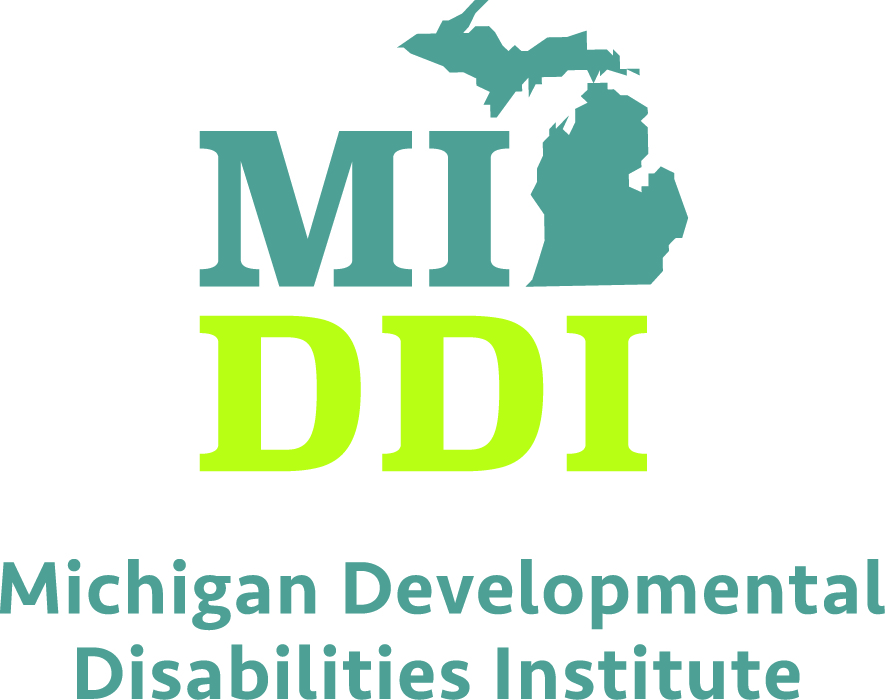DETROIT – The Michigan Developmental Disabilities Institute (MI-DDI) at Wayne State University recently received a $99,000 grant from the Robert Wood Johnson Foundation (RWJF) based in Princeton, New Jersey. MI-DDI’s awarded project will design, implement and evaluate a health equity training curriculum for primary care health professionals and trainees.
 The focus of the training will be on the intersection of disability and aging in communities of color. People with disabilities experience poorer health outcomes when compared to those without disabilities. Black, Indigenous and People of Color (BIPOC) with disabilities face unique systemic challenges due to their intersecting identities. Aging with a disability also presents considerable challenges, with many health needs going unidentified and unmet when compared with the general population.
The focus of the training will be on the intersection of disability and aging in communities of color. People with disabilities experience poorer health outcomes when compared to those without disabilities. Black, Indigenous and People of Color (BIPOC) with disabilities face unique systemic challenges due to their intersecting identities. Aging with a disability also presents considerable challenges, with many health needs going unidentified and unmet when compared with the general population.
Part of the proposed plan for addressing challenges to health equity include improving health care providers’ knowledge of older adults of color with intellectual and/or developmental disabilities (I/DD), expanding initiatives focused on intersectionality and disability, and continuing equity training beyond the initial grant period. The long-term goal is to develop a national model for other states to train health professionals on the unique needs of older adults with I/DD in communities of color.
The project will employ a community-based research approach to ensure that people with lived experience provide leadership at every stage of the project. Individuals with direct lived experience will be essential to providing leadership to program development and implementation.
“We are honored to receive this support from the Robert Wood Johnson Foundation to expand our critical work addressing health disparities,” said MI-DDI Director Sharon Milberger. “This project will allow health care providers to better meet the unique needs of older BIPOC patients with disabilities.”
Key project partners include the Healthier Black Elders Center (HBEC), which is part of Wayne State’s Institute of Gerontology. The HBEC is the community engagement core for the Michigan Center for Urban African American Aging Research, and it has been supported by the National Institute on Aging at the National Institutes of Health for the past 22 years. The HBEC’s goal is to address health disparities within the Detroit community.
The project will also look to build upon the success of existing MI-DDI projects, including the Most Valuable Provider (MVP) program and the Michigan Leadership Education in Neurodevelopmental and Related Disabilities (MI-LEND) program. MVP, adopted by 23 organizations statewide, certifies accessible, sensory-friendly health care sites. MI-LEND is a collaboration between seven Michigan universities and Michigan’s Title V Program (The Family Center), training emerging leaders to improve health outcomes for individuals with neurodevelopmental disabilities.
“We are pleased to partner with the Healthier Black Elders Center and build upon our successful statewide initiatives addressing health disparities,” notes Milberger.
RWJF is a leading national philanthropy dedicated to transforming health in our lifetime. Through funding, convening, advocacy and evidence-building, RWJF works side by side with communities, practitioners and institutions to reach health equity faster and build a future where health is no longer a privilege, but a right.
About MI-DDI
MI-DDI’s mission is to contribute to the development of inclusive communities and quality of life for people with disabilities and their families. This is done through a culturally sensitive statewide program of training and education, community support and services, research, and information development and sharing. Learn more at ddi.wayne.edu.
Related articles
Accelerate mobility
-
Fueling prosperity: The value and affordability of a Wayne State degree
-
Eight ways WSU helps students cut the costs of college
-
Math's 'Flipped classroom’ model to support student success
-
Wayne State celebrates first-generation students, social mobility
College to Career
-
Wayne State mortuary science program to hold interfaith service for unclaimed decedents
-
Wayne State metalsmithing alumnus Alex Stchekine discusses his WSU story, career path
-
How to prepare for the All-Majors Career Fair at Wayne State
-
Fueling prosperity: The value and affordability of a Wayne State degree
Fuel innovation
-
Wayne State researcher pilots AI-powered learning assistant to ethically enhance education
-
TechTown Detroit expands vision for tech founders with strategic leadership hires
-
Wayne State University wins top national prize for innovation and economic engagement
-
Wayne State University launches WSU OPEN to speed and simplify external partnerships, names Michigan Central as first partner
Empower health
-
In new study, community stakeholders identify Detroit’s greatest health equity challenges
-
Undergraduate research inspires student to pursue career in sports medicine
-
Wayne State University research to help better understand critical cell biological processes that may lead to new disease treatments
-
Fighting heart disease: Wayne State’s mission to improve Detroit’s heart health
Public Health
-
Fighting heart disease: Wayne State’s mission to improve Detroit’s heart health
-
Bernard J. Costello, MD, DMD, joins Wayne State University as Senior Vice President for Health Affairs
-
V Efua Prince explores urban health challenges in new book ‘Kin’ amid ongoing research on addiction and mental health
-
Riding with the Wayne Mobile Health Unit
